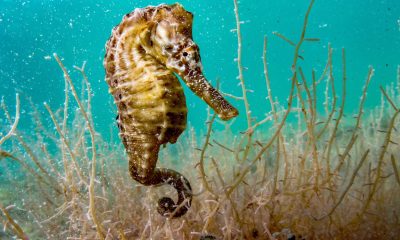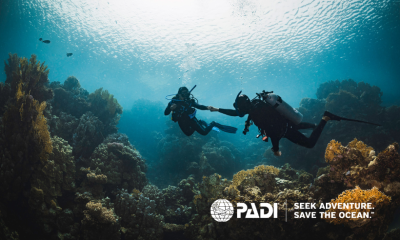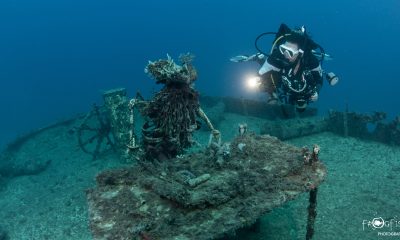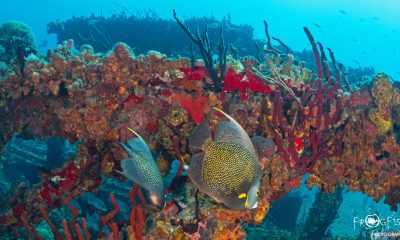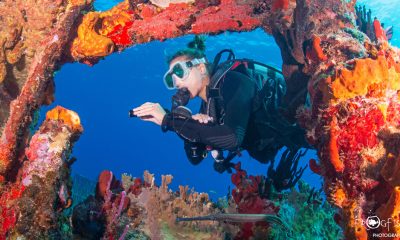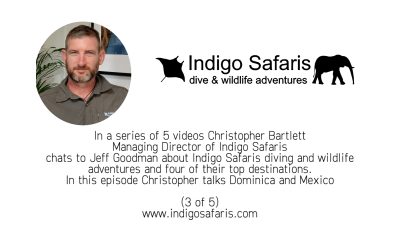News
Diving with… Maartje Sterk, ScubaCaribe Jamaica, Montego Bay
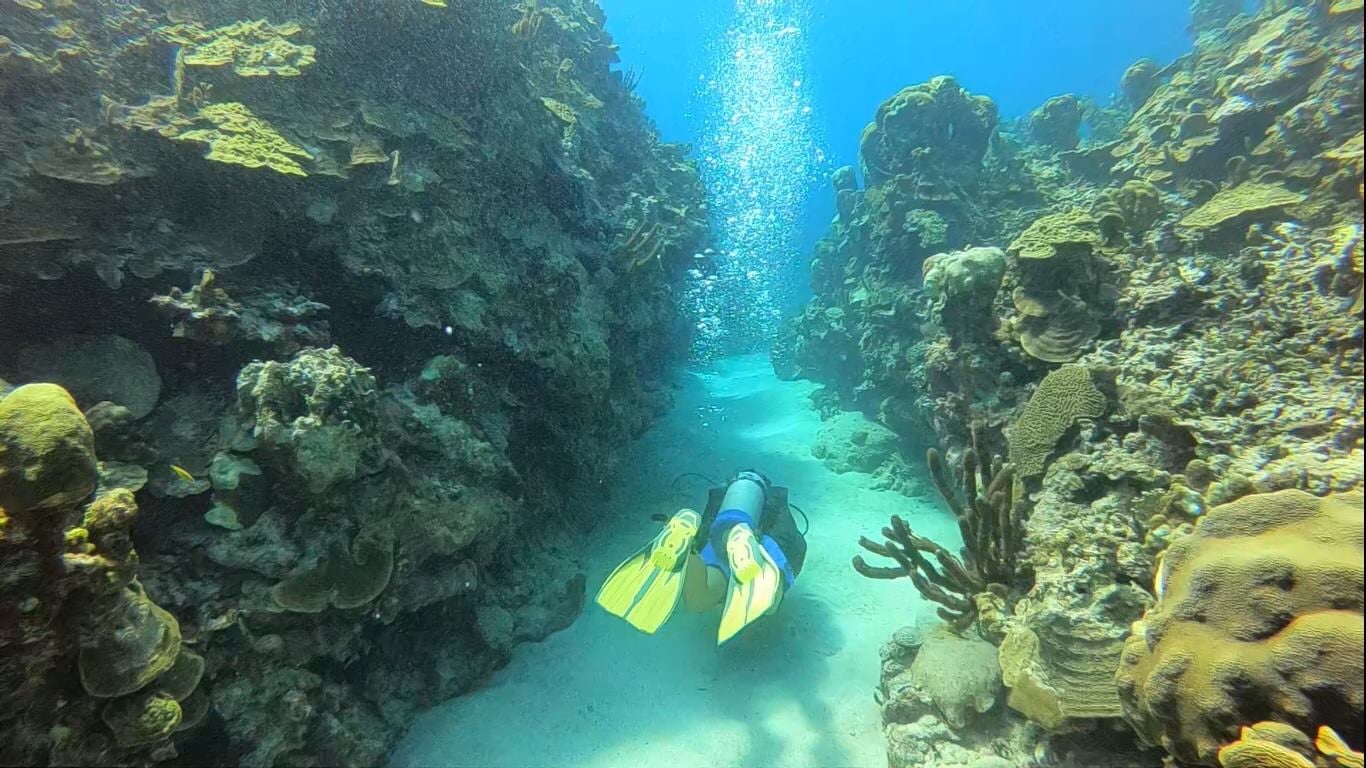
In this ongoing series, we speak to the people who run dive centres, resorts and liveaboards from around the world about their businesses and the diving they have to offer…
My name is Maartje Sterk and I am from The Netherlands.
What is the name of your business?
ScubaCaribe
What is your role within the business?
I am the Dive Team Leader for two dive centers in Montego Bay Jamaica. My responsibilities are making the daily dive schedule, being responsible for all bases, their inventories and making sure all our equipment is in an excellent state and being maintained, giving training to our dive staff, front office, captains and lifeguards, and of course teaching PADI courses and guiding fun divers around our beautiful reefs!
How long has the business operated for?
ScubaCaribe was founded in Punta Cana (Dominican Republic) in 1991.
How long have you dived for, and what qualification are you?
I started diving in 2012. My mother is a dive instructor and encouraged me to try diving too. My first experience was in 4 degrees dark murky Dutch water. My first ocean dive in the Philippines made me hooked on diving. After my first fun dives in the beautiful warm waters in Asia I went back to Holland and started to do multiple Specialties and Advanced courses. In 2015 I decided I wanted to live abroad and make diving my living so I finished my Divemaster course. In 2016 I became a Master Scuba Diver Trainer in Koh Tao Thailand. Besides my recreational MSDT certificate I am also an Advanced Trimix Diver.
What is your favorite type of diving?
My favourite type of diving is deep dives and wall dives. The deep dives require some more planning and thinking before you go into the water. The theory part and the calculations before this type of dives is especially very interesting. The feeling you have when you are diving next to a big wall, covered in hard and soft coral, schools of fish surrounding you and when you look down you see the wall ending in an endless deep blue with all kind of mysteries, reefs and marine life waiting to be discovered, I can’t even describe it… The chance of seeing some bigger marine life is a little bit bigger and of course the wall is a perfect hiding spot for some small marine life such as lobsters and crabs, or moray eels.
If you could tell people one thing about your business (or maybe more!) to make them want to visit you what would it be?
Montego Bay has a lot to offer. The diving we offer here is very easy. We don’t have extremely strong currents or very choppy seas which makes it perfect for beginners. Because we have a lot of different dive sites, from reefs to walls, you will never get bored of the diving and you will never dive the same reef twice. One of our popular sites is Stingray City. It’s a shallow reef where we almost all the time find the city’s inhabitants: big southern stingrays. It never gets boring to see these massive rays hiding in the sand or stirring up the ocean floor looking for food.
We also have a great team in Montego Bay who will make you feel at home right away! Safety is our main priority according to all the activities we offer. Our team is very friendly, helpful and knowledgeable about the activities we offer and the environment we are in. When you come to visit our base, you will feel part of the family!
What is your favorite dive in your location and why?
My favourite dive site is called Airport Wall. It is a very steep and deep wall located next to Montego Bay International Airport. During your trip there you will see the airplanes coming in just in front of the dive boat. When you descend you will start at a shallow part of the reef which is about 40 feet deep. If you swim out for a couple of minutes north you will reach the wall. The top of the wall is about 50 feet deep and it drops down until you can’t even see the end anymore. We have massive barrel sponges, huge colourful fans, big schools of snapper and blue chromis swarming around you. If you are lucky you will see southern stingrays, spotted eagle rays, barracuda, turtles, and on some very lucky days we can find nurse sharks or even dolphins. A dive at this site can never last long enough!
What types of diving are available in your location?
At our base we offer guided dives from our dive boat. We are located on the north side of Jamaica. That means, right in front of our dive center, we have one big reef along the coast line. When you swim out north from this shallow reef, it drops down in a wall or slope. Therefore we have a massive variety to offer to our divers. Shallow and easy reefs with lots of marine life and some cool swim throughs. For the more Advanced divers we have some incredible walls where you can drift along on your search for different marine life. We also have a small wreck of a DC3 Plane. The plane is partly deteriorated, but you can still see the wings and the propellers of the plane clearly.
What do you find most rewarding about your current role?
The most rewarding part is to see the happy customers after a day of diving. Also, when I see the staff growing in their knowledge and using it in all the activities we have to offer. Everybody is very interested in the training we provide as a company and willing to improve. It is very rewarding to see people learn and grow.
What is your favorite underwater creature?
My favourite underwater creature is the octopus. It’s very hard to find them because usually they are hiding in some small caverns or holes. When they find their temporary home, they block their front doors with a lot of shells. They are beautiful to look at and almost hypnotizing! They can squeeze their bodies through the tiniest holes and are very clever!
As a center what is the biggest problem you face at the moment?
Our biggest problem is the country’s reputation. When people hear about Jamaica they think that it is an unsafe country with mediocre diving. Well, both of them are absolutely not true! Just as in every other country, we have some areas that are best to be avoided here but overall the country is very safe. The locals are very friendly and helpful. Tourism is a big income for the country so they will not do anything to jeopardize that. Jamaica’s tourism means mainly all inclusive resorts which can provide you with tours around the island as well.
The diving is absolutely amazing here. As I told before, we have a big variety of reefs and walls suitable for every level of diver, diverse marine life which includes multiple types of rays, barracuda, turtles, and lots of smaller marine life, with all kinds of reef fish, nudibranch, eels, crab and lobster. You can never predict what you will see here. Occasionally we see dolphins during our dives or a hiding shy nurse shark. We hope by promoting our diving we can show the world how beautiful our reefs are!
Is your center involved in any environmental work?
Our company ScubaCaribe is closely involved with PADI and Project AWARE. On a daily basis we explain to all our divers the importance of our reefs and the importance of being environmentally friendly. Reducing plastic, picking up garbage if we find it during our dives, the use of biodegradable sunscreen etc. All our staff participate in coral conservation lectures and presentations about our marine life and coral reefs to make everyone more aware and give the good example and spread the word! AWARE week takes place in September and every ScubaCaribe base holds an event for their specific base during this week. Montego Base held a reef and beach clean up together with staff and divers. We followed this with a talk about our marine life and the importance of our reefs.
What would you say to our visitors to promote the diving you have to offer?
If you are a non-diver or an advanced diver, we have something to offer to you. Our cristal clear, blue ocean with great visibility and warm temperature year round makes it a perfect way to start your diving adventure or to explore our reefs and walls. We have a big variety of dive sites and a great range of marine life to be found. Our ScubaPro equipment is in excellent condition and safety is our main priority. We keep our groups small, and all dives are guided by PADI professionals. Our staff are helpful, friendly and always in for a chat! Come check us out!
Where can our visitors find out more about your business?
- www.scubacaribe.com
- info@scubacaribe.com
- @scubacaribejamaica
- @scubacaribe
News
Seahorse National Park announced on Eleuthera in The Bahamas
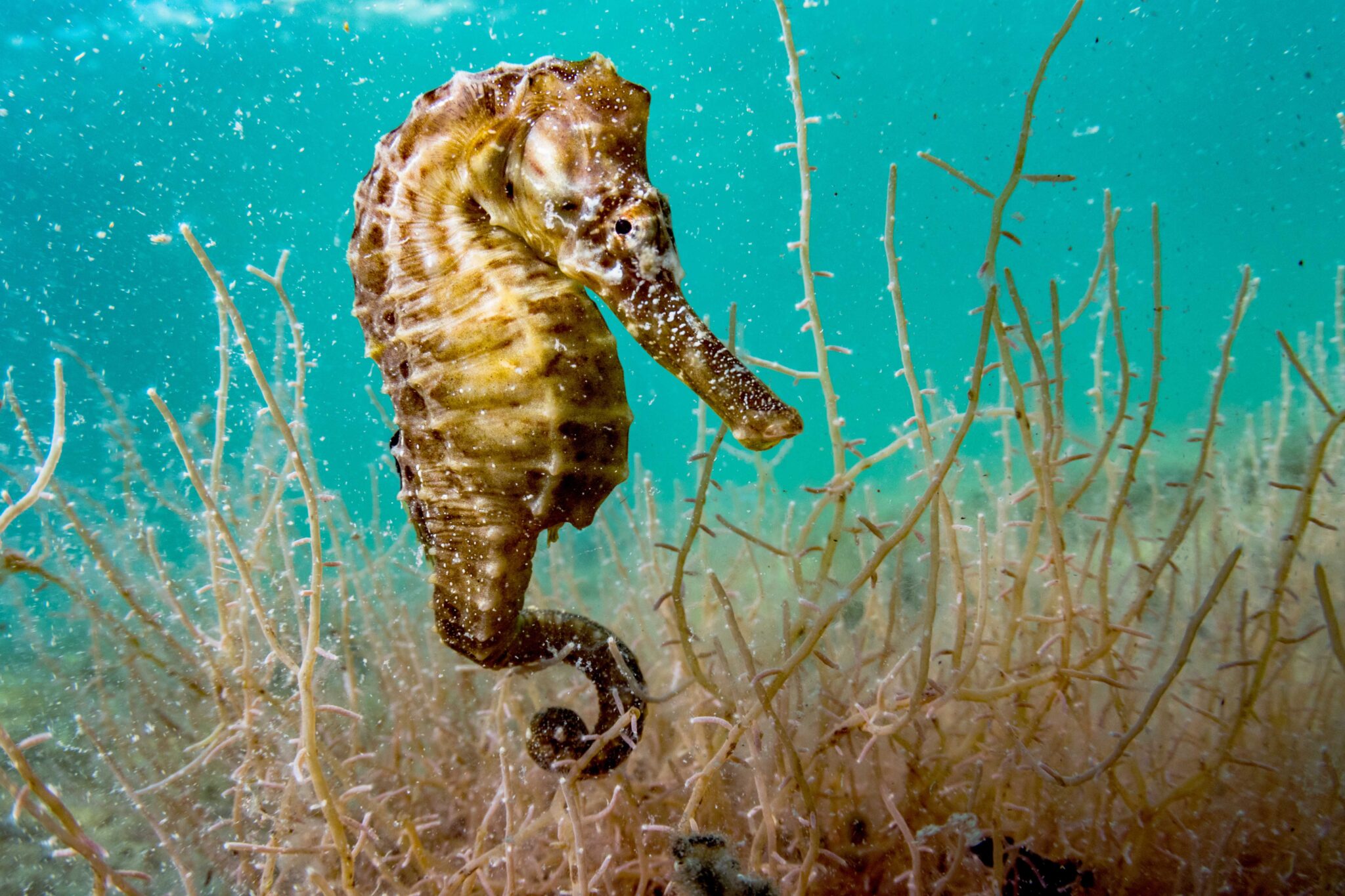
This week has seen the announcement of the designation of Seahorse National Park at Hatchet Bay Cave and Sweetings Pond on Eleuthera. This monumental announcement comes after years of efforts from the BNT and its partners in advocating for the protection of Sweetings Pond and its surrounding areas as an official national park under the BNT’s management.
Sweetings Pond is a large, land-locked saltwater pond in Hatchet Bay, Eleuthera. It has many unique natural features, but the most notable of them all is its incredible seahorse population, which is believed to be the densest population of seahorses in the world. The new 548-acre national park protects the entire one-mile-long pond and the surrounding terrestrial area. The land surrounding Sweetings Pond is a blend of intact coppice, mangroves, and farmlands. In addition, the new national park includes the extensive Hatchet Bay Caves system. This historic cave system is a popular attraction and contains a number of impressive geological features. It is one of the longest dry cave systems in The Bahamas.
Since 2014, the BNT has been leading efforts to have the area declared as a national park. This included years of public outreach and stakeholder consultations in communities across Eleuthera; education presentations in local schools; science and research efforts; and engaging consecutive government administrations. In 2018, the BNT submitted the “20 by 20 Marine Protection Plan” to the government, which included the recommendation to declare Sweetings Pond and other areas in The Bahamas as protected areas.
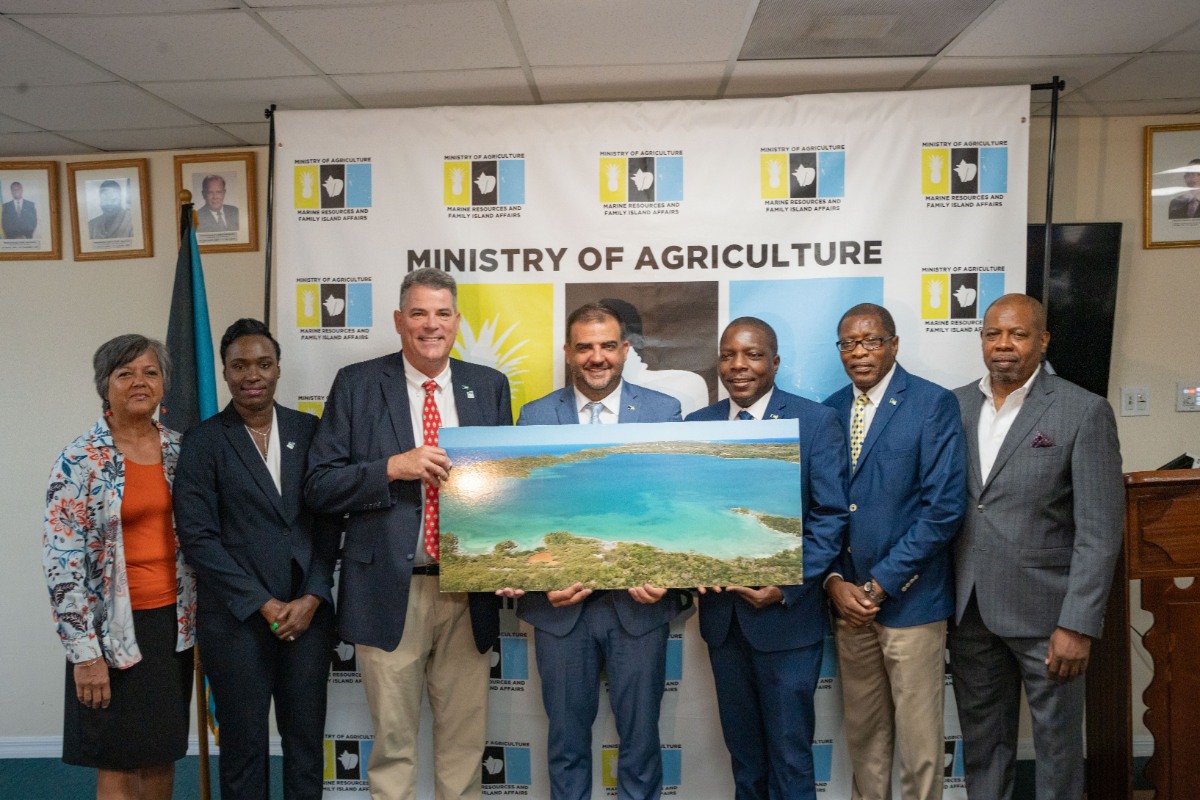
During the lease signing ceremony for Seahorse National Park, Minister Clay Sweeting, said, “This lease agreement for Sweetings Pond has been a long time coming. It represents a milestone in our journey towards sustainable development. It symbolises our collective responsibility to safeguard our natural heritage and create a harmonious relationship between economic progress and environmental preservation.
“I would like to express my gratitude to all stakeholders in this process of drafting and finalising this lease agreement. Their dedication, expertise, and commitment has been crucial in ensuring that this agreement falls in line with our vision of creating a thriving ecosystem while promoting responsible usage. Let us continue to preserve the jewel that is Sweetings Pond for many generations to come.”
The BNT invites the public to stay tuned for more news about its plan for the country’s newest national park: Seahorse National Park at Hatchet Bay Cave and Sweetings Pond!
To learn more about the role the BNT plays in managing terrestrial and marine national parks, conserving wildlife, and informing environmental policy, please visit its website: www.bnt.bs
Follow/subscribe to its various social media channels: Facebook, Instagram, Twitter, and YouTube.
Banner Image: A lined seahorse (Hippocampus erectus), female, clining to algae in an alkaline pond in The Bahamas by Shane Gross
News
PADI Club invites Ocean Lovers on exclusive dive trip to Bonaire this September
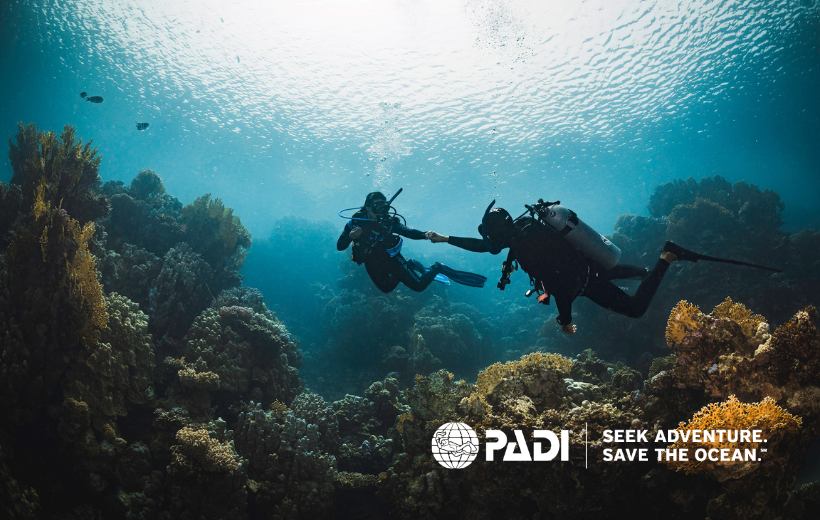
Following the popularity of the PADI Club trip to Belize at the end of July, a second “dive trip of a lifetime” has just been announced by PADI Club to Bonaire this September 23-30, 2023.
Offered exclusively for PADI Club members as part of their yearly benefits, attendees will get to seek adventure while staying at the all-inclusive Buddy Dive Resort, one of PADI’s premier members on the island. Other PADI Members in Bonaire – including Toucan Divers, Divi Flamingo, Wanna Dive, Dive Friends and Scuba Do – will also be hosting various dive experiences throughout the week.
“Bonaire is a unique and beautiful gem in the Dutch Caribbean and we want to show our Club Members this little island looms large as a dive destination,” says Zach Pavkov, PADI Club Operations Manager. “This trip offers participants a chance to not only explore a world-class diving destination but do so through some of the very best PADI Operators.”
PADI Club members will receive a generous discount for this seven-day diving adventure, with packages starting at $1,739 per diver for double occupancy.
Included in the package are:
- social events that include hosted dinners, cocktail parties and live music
- transportation in Buddy Dive Resort’s famous pick-up truck
- daily shore diving and boat diving
- accommodation, with the option to share a room with another solo diver or rent out one, two and three-bedroom apartments to host larger groups of divers
- surface interval activities that include PADI Seminars and island excursions like hiking and bird-watching.
“Because the water surrounding Bonaire has been an established marine park for 44 years, Bonaire is now a top-ranked destination with abundant marine life that includes scorpionfish, flounder and frogfish, moray eels, hawksbill turtles and eagle rays, ” continues Pavkov.
With limited spots available, the list of participants will be decided on a first-come, first-served basis. Those who are not yet PADI Club Members but are interested in joining the trip can sign-up, which will also give them access to:
- 20% of PADI eLearning® programs and PADI Gear™
- a free ReActivate® online refresher
- a free DAN® Prepared Diver course
- a subscription to Scuba Diving® magazine
- access to the PADI Club Celebrity Speaker Series webinars
- brand partner benefits from GoPro, Uber, Salt Life and more
To further support ocean lovers to create positive ocean change, five percent of the PADI Club membership fee will go towards supporting conservation efforts around the globe.
“PADI Club benefits are designed not just to empower divers to explore the ocean, but also enable them to play a pivotal role in saving the ocean too,” says Pavkov. “This year’s additional expedition to Bonaire gives our community the chance to come together and explore our shared blue planet in a truly meaningful and connected way.”
Click here to sign up for PADI Club and reserve your spot here to join the Bonaire dive trip.






